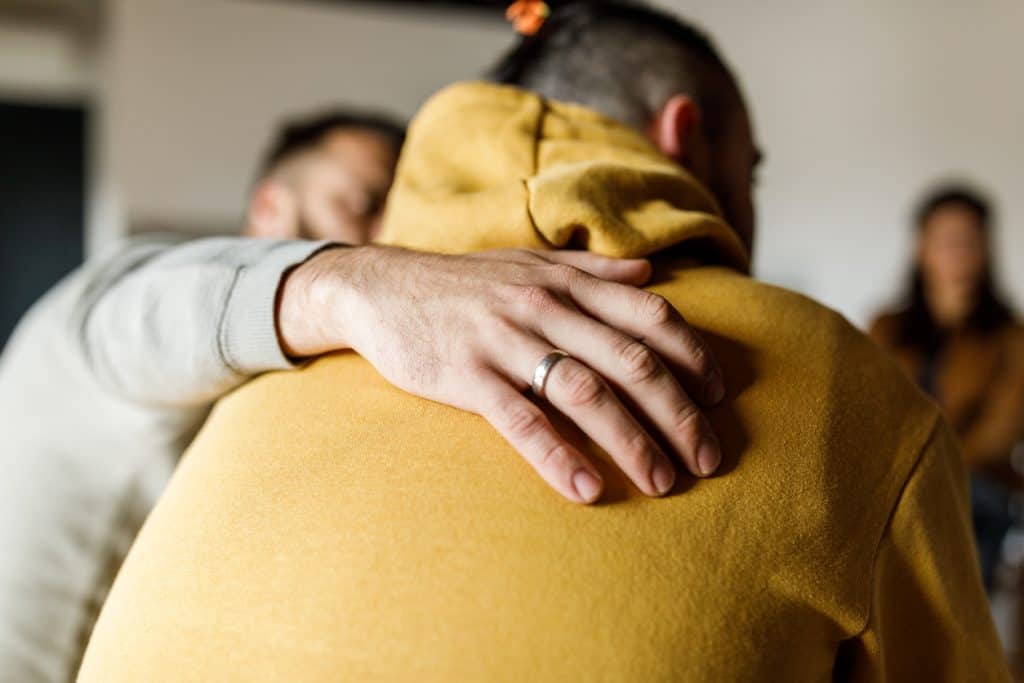After helping people quit porn for more than 20 years, we know there’s a strong connection between porn and shame.
Most research psychologists and sociologists recognize this connection. However, many still debate which comes first. Does feeling shame about porn cause people to consider it an addiction? Or does porn addiction cause feelings of shame about porn?
New research published in Frontiers in Psychiatry indicates porn addiction itself causes feelings of shame, even apart from religious convictions.1 Let’s take a look at the evidence and why this is.
Who finds porn shameful?
Before getting to the “why” of shame, we need to first look at the people who are experiencing this shame.
Christians, generally speaking, oppose pornography on moral grounds. A Christian usually feels guilty for watching porn because the Bible teaches that porn is a sin. Some psychologists and sociologists have argued that people who feel shame regarding their porn use do so only because of their religious convictions.
However, this new research shows that the shameful feelings around porn are not strictly religious. In this study, only 30% of the participants were religious. Those who were religious did not cite this as a primary reason for their feelings of shame.
The participants of the study represent a larger section of the population who find their porn use shameful, apart from any religious scruples or convictions. Despite the propaganda that “porn is nothing to be ashamed of,” those who struggle to quit find just the opposite!
How shame relates to guilt.
Many people who watch porn speak of feeling “ashamed.” Others speak of feeling “guilty.” What’s the difference? Generally speaking, guilt has to do with how someone feels about their actions. Shame relates more closely to the person’s identity. An article in Europe’s Journal of Psychology suggests two criteria for distinguishing guilt and shame.
“[T]he kind of self-evaluation involved (inadequacy versus harmfulness); one’s focus on the perceived discrepancy between actual and ideal self versus one’s focus on the perceived responsibility for one’s fault.”
A person will feel guilty for watching porn if they believe it’s wrong. Shame may coincide with feelings of guilt. But the research published by Frontiers in Psychiatry found that some people who watch porn feel shame even apart from guilt.
See related: Guilt vs. Shame: Why Definitions Matter
Why does porn bring shame?
Why did they feel ashamed about watching porn? Because they felt their addiction was out of control.
“Participants were clear about the problems that their out-of-control behavior caused. At the intrapsychic level, more than half of the participants spoke about self-disdain and self-degradation to the point that they stopped respecting themselves. Typically, they had feelings of self-disgust, shame, and even suicidal thoughts.”
So then, it was the effect that porn had on their lives that gave them feelings of shame—not their prior beliefs about porn. There’s something to the way porn impacts your thoughts and behavior that often brings with it a deep sense of shame. But let’s look more closely at this out-of-control feeling.
Two Types of Out-of-Control Behavior.
The first kind of out-of-control behavior the researchers found was related to the loss of a sense of time and place. One of the participants said:
“I just opened the computer, just to read emails, and then I stayed the whole night watching and masturbating and, at the end, I had no idea how that actually happened.”
The second relates to relapses. The researchers continued:
“All participants experienced at least some relapses and the majority of them experienced many intensive relapses… Especially after a period of abstinence, some participants had extended sexual sessions and quickly returned to the consumption of hard pornography in order to “catch up on” everything they had missed…”
These are common experiences for those who struggle with porn addiction.
See related: Why Is Porn So Addictive? 4 Reasons It’s Tough to Resist
Escalation of Out-of-Control Behavior
The researchers also reported that “the majority of participants had experienced some form of increasing tolerance in their behavior.”
This tolerance manifested in more and more time spent watching porn. For many, it also included increased intensity of sexual material and pushing the boundaries of what they would have deemed appropriate or appealing in the past.
Two participants were quoted:
“It is a thing that always needs more and more, because those pictures stop being really, like, hot. They stop working, and a person needs a stronger stimulus.”
“I was really disgusted by what I was watching, because it was still harder and it just did not often bring that effect.”
This corresponds with older research about the ways that porn warps our brains. The pornographic images and videos that were originally consumed no longer bring satisfaction. Newer, more graphic, or extreme forms of porn are needed to bring the same thrill.
Shame is compounded by unhelpful responses.
Oftentimes, the people confided in about a porn addiction also feel a sense of shame or embarrassment and are unsure of how to help. Their shame has a compounding effect on the person who is struggling with porn.
One participant who had sought professional help was quoted:
“I felt humiliated to express myself, but the psychologist seemed to feel even more shame than I did. I think she did not expect what would come. And the therapy totally failed in the effect” (P7).
In other words, this individual disclosed their struggle to a therapist looking for help, only to find the therapist was too embarrassed to deal with the problem!
When people respond to our shame with shame, it only deepens the hold that porn has on our lives. Knowing there are those who may respond in this way makes many fearful to up about their porn struggles. This keeps them trapped in a shame cycle of addiction.
Can you escape the shame of porn?
The good news is that you can break free from the shame of porn. As much as unhelpful responses can deepen the shame of porn, nothing removes shame like the power of accountability to an ally who supports you. Here are some comments from Covenant Eyes members:
“I’ve struggled with guilt and shame a lot. Now I have nothing to hide, so guilt and shame have been crushed. It feels good to be free from sin and addiction.”
“This site is a gift and I am really thankful it exists. It does not shame the person struggling with porn, but is creating a very safe place for there to be accountability and growth. It has set my husband up for success and I am so grateful for that.”
“I think an ally is a very necessary part of my story. I tried to conquer it [on] my own, but the only way I could have recovered is by God’s grace and [the] people he put in my life. Don’t feel guilty or ashamed. You’re still loved by a lot of people.”
If you feel trapped by the shame of porn addiction, you’re not alone. We’re here to help and equip you with resources for the journey. Find out more in How to Quit Porn: 6 Essential Steps.
1 Lukas Blinka, Anna Ševčíková, Michael Dreier, Katerina Škařupová, and Klaus Wölfling, “Online Sex Addiction: A Qualitative Analysis of Symptoms in Treatment-Seeking Men” Frontiers in Psychiatry 7 (2022). https://doi.org/10.3389/fpsyt.2022.907549








Thanks Keith, this helped me.